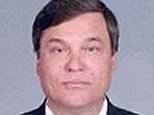Brexit has been DEADLY: Number of European nurses registering to work in the UK has fallen by 92% following the controversial vote
- Just 101 nurses from EU nations registered to work in Britain in December 2016
- But this figure was 1,304 in July - the month directly following the referendum
- The NHS already has 24,000 nursing vacancies advertised across the country
- Experts warn that if the current trends continue the NHS could suffer majorly
Brexit has had a devastating effect on the number of nurses registering to work in Britain, new figures show.
Currently in a 'winter crisis', the NHS already has a staff shortage with 24,000 nursing vacancies advertised across the country.
But the number of European nurses moving to work in Britain has fallen by more than 90 per cent following the controversial vote, last June.
Now, experts warn the NHS could suffer a further crisis if the current trend continues, with hospitals across the country already over-stretched.
Decline: The number of European nurses has free-fallen since millions voted to leave the EU
Janet Davies, chief executive of the Royal College of Nursing, said it was the first sign of a change following the EU referendum.
She told AFP: 'It is our responsibility as the regulator to share these figures with the public. With 24,000 nursing vacancies across the UK, the NHS simply could not cope without the contribution from EU nurses.
'We need a guarantee that EU nationals working in the NHS can remain.
'Without that, it will be much harder to retain and recruit staff from the EU, and patient care will suffer as a result.'
Just 101 nurses and midwives from EU nations registered in December, compared with 1,304 in July - the month following the vote, data from the RCN revealed.
Just 101 nurses and midwives from EU nations registered in December, compared with 1,304 in July - the month following the vote
Official figures comparing the monthly averages for previous years show 204 nurses registering in 2016.
This was down from the 820 estimated in 2015 and 707 the year previous.
However, Ms Davies stresses that it was not possible to link the fall in registrations with Brexit 'definitively'.
But she added that the sharp decline of the pound has cut wages for those looking to move to Britain.
There are almost 700,000 nurses currently registered in the UK, of which 84.8 per cent are British.
It is estimated that 5.6 per cent are from nations within the EU, with the remaining being from other areas of the world.
The nursing shortage will continue for years and may get even worse, a report warned last July.
Almost a third of nurses are over 50 and many will retire within the next ten years, The Institute for Employment Studies noted.
The crisis has come about because the Government slashed the number of nurse training posts between 2009 and 2013 by 17 per cent.
But this coincided with a sudden increase in demand on wards, partly due to the aging population as well as fresh concerns that patients were being neglected.
And research in 2015 found that hundreds of patients die every year after emergency surgery because there are not enough nurses to care for them.
A five-year investigation into death rates in English NHS hospitals found those with the highest staffing levels had the lowest death rates.
MailOnline have contacted NHS England for a comment, but are yet to receive a response.
Most watched News videos
- Muslim American woman films man as he bullies her at cafe
- 'My mum's a witch!': 'Drugged' Mischa Barton's scary breakdown
- Terrifying moment tiger attacks man inside zoo enclosure in China
- Haunting footage of final moments of Endah Cakrawati before crash
- Winona Ryder looks confused during David Harbour's speech at SAGs
- Heroic dogs save terrified woman from deadly King Cobra snake
- Woman hears for the first time since she was two and a half
- Incredible moment mother KICKS her toddler daughter to safety
- Masked thugs in Belgravia hurl missiles and abuse at squatters
- Ashton Kutcher speaks out against Immigration Ban at SAG awards
- Amazing!: Toddler climbs gate with incredible precision
- Julia Louis Dreyfus mocks & stands up to Trump during SAGs
-
 PICTURED: White university student named as the sole...
PICTURED: White university student named as the sole... -
 Islamic State's chief executioner - who has beheaded more...
Islamic State's chief executioner - who has beheaded more... -
 Hollywood declares war on Trump: SAG Awards descends into...
Hollywood declares war on Trump: SAG Awards descends into... -
 Brave hijab-wearing Muslim-American woman films the...
Brave hijab-wearing Muslim-American woman films the... -
 Supreme Court nomination will come TOMORROW as Trump...
Supreme Court nomination will come TOMORROW as Trump... -
 £148m lottery winner is DUMPED by his stable-girl fiancée...
£148m lottery winner is DUMPED by his stable-girl fiancée... -
 'Shoot Harry just to frighten him - shut him up':...
'Shoot Harry just to frighten him - shut him up':... -
 Trump SACKS Attorney General Sally Yates after she told...
Trump SACKS Attorney General Sally Yates after she told... -
 Protestors take to Britain's streets over Trump's state...
Protestors take to Britain's streets over Trump's state... -
 Alton Towers crash victim Vicky Balch admits she...
Alton Towers crash victim Vicky Balch admits she... -
 The beach where nature has transformed a Russian dumping...
The beach where nature has transformed a Russian dumping... -
 Pictured: Former KGB general who helped MI6 spy compile...
Pictured: Former KGB general who helped MI6 spy compile...































 Your comment will be credited to your MailOnline persona
Your comment will be credited to your MailOnline persona




































![FROM ITV \nSTRICT EMBARGO - No Use Tuesday 31 January 2017\nCoronation Street \nMonday 6 February 2016 - 1st Ep\nSophie Webster [BROOKE VINCENT] arrives home from Miami and dragging Kevin Webster [MICHAEL LE VELL] outside, tells him she�s brought him a surprise. Kevin�s thrilled when Rosie Webster [HELEN FLANNAGHAN] emerges from the taxi. As Rosie drags her vast amount of luggage into the house she talks nonstop nonsense. Kevin and Sophie are amused whilst Anna Windass [DEBBIE RUSH] wonders what�s hit her. \nPicture contact: david.crook@itv.com on 0161 952 6214\nPhotographer - Mark Bruce\nThis photograph is (C) ITV Plc and can only be reproduced for editorial purposes directly in connection with the programme or event mentioned above, or ITV plc. Once made available by ITV plc Picture Desk, this photograph can be reproduced once only up until the transmission [TX] date and no reproduction fee will be charged. Any subsequent usage may incur a fee. This photograph must not be manipulated](http://web.archive.org./web/20170131094322/http://i.dailymail.co.uk/i/pix/2017/01/31/01/linkListItem-0-3CAD65BD00000578-702_154x115.jpg)
















































































































































































































































































































